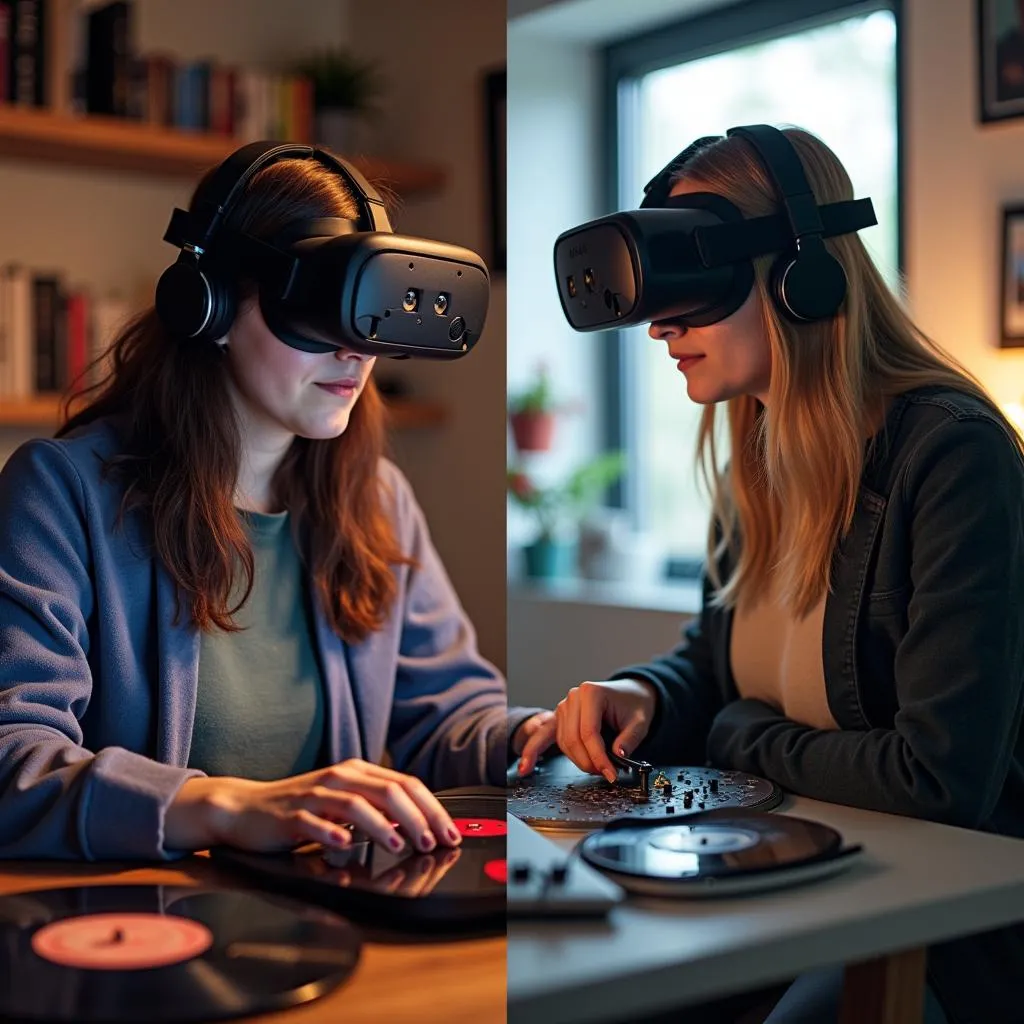The topic of describing a recently taken up hobby is a common and engaging subject in IELTS Speaking tests. Examiners often use this theme to assess candidates’ ability to express personal experiences, interests, and opinions. As the popularity of hobbies has increased in recent years, especially due to global events encouraging people to explore new pastimes, this topic is likely to remain relevant in future IELTS exams.
Part 1: Introduction and Interview
In the first part of the IELTS Speaking test, you may encounter questions related to hobbies. Here are some typical questions and a sample answer:
Examiner: “Have you started any new hobbies recently?”
Sample answer (Band 7-8):
“Yes, I have. Actually, I recently took up urban sketching. It’s a form of art where you draw scenes from everyday life in cities or towns. I find it incredibly rewarding as it allows me to capture the essence of my surroundings while improving my artistic skills.”
Describe a person who has a deep knowledge of a subject you are interested in. This topic can be related to hobbies, as people often develop expertise in their areas of interest.
Part 2: Long Turn
Cue Card
Describe a hobby you took up recently
You should say:
- What the hobby is
- When you started it
- Why you chose this hobby
- And explain how you feel about this hobby
Sample Answer (Band 6-7)
“I’d like to talk about a hobby I recently started, which is gardening. I began this hobby about six months ago when I moved into a new house with a small backyard. I chose gardening because I wanted to make my outdoor space more attractive and also grow some of my own vegetables.
At first, it was quite challenging as I had no experience in plant care. I started by researching online and watching YouTube tutorials about basic gardening techniques. Then, I bought some seeds and gardening tools and began with simple plants like tomatoes and herbs.
What I love about gardening is that it’s both relaxing and rewarding. It’s a great way to reduce stress after a long day at work. There’s something satisfying about nurturing plants and watching them grow. Plus, the fresh vegetables I’ve grown taste so much better than store-bought ones.
Overall, I feel that gardening has been a positive addition to my life. It’s taught me patience and the importance of consistent care. I’m looking forward to expanding my garden and trying more challenging plants in the future.”
Sample Answer (Band 8-9)
“I’d be delighted to share with you a hobby I’ve recently embraced – astrophotography. This fascinating pursuit combines my longstanding interest in astronomy with my passion for photography, creating a unique and challenging hobby that I initiated approximately four months ago.
The catalyst for this new endeavor was a serendipitous encounter with a stunning image of the Orion Nebula on social media. Intrigued by the possibility of capturing such celestial wonders myself, I delved into researching the equipment and techniques required for astrophotography.
My decision to pursue this hobby stems from a multifaceted desire to expand my skillset, challenge myself intellectually, and connect with the universe in a tangible way. Astrophotography demands a blend of technical knowledge, patience, and creativity, which I find immensely stimulating.
The experience has been nothing short of transformative. There’s an indescribable sense of awe when you successfully capture the light from distant galaxies or the intricate details of lunar craters. It’s not just about the end result, though. The process itself – from planning shoots based on celestial events to the meticulous post-processing of images – is incredibly fulfilling.
Moreover, this hobby has fostered a deeper appreciation for our place in the cosmos. It’s humbling yet inspiring to witness the vastness and beauty of space through my own lens. Astrophotography has also connected me with a vibrant community of like-minded enthusiasts, leading to enlightening discussions and collaborations.
In essence, this hobby has become more than just a pastime; it’s a journey of continuous learning and wonder that I’m wholeheartedly embracing.”
 Astrophotography as a new hobby capturing celestial wonders
Astrophotography as a new hobby capturing celestial wonders
Follow-up Questions
Examiner: “Do you think you’ll continue with this hobby in the future?”
Sample answer (Band 6-7):
“Yes, I definitely plan to continue with astrophotography. It’s become a passion of mine, and I’m eager to improve my skills. I’m looking forward to capturing more challenging celestial objects and maybe even participating in astrophotography competitions.”
Sample answer (Band 8-9):
“Absolutely, I see astrophotography as a long-term pursuit that I’ll continue to cultivate. The field is constantly evolving with new technologies and techniques, which presents an exciting opportunity for perpetual learning and growth. I’m particularly keen on exploring more advanced imaging methods, such as deep-sky astrophotography, and perhaps even contributing to citizen science projects that utilize amateur astrophotographers’ data.”
Part 3: Two-way Discussion
Examiner: “How do you think hobbies benefit people in general?”
Sample answer (Band 6-7):
“I believe hobbies are very beneficial for people. They provide a way to relax and de-stress after work or school. Hobbies also help people develop new skills and can be a good way to meet new friends with similar interests. For example, joining a photography club can help you improve your photography skills while also socializing with others who share your passion.”
Sample answer (Band 8-9):
“Hobbies play a pivotal role in enhancing an individual’s overall well-being and personal development. Firstly, they serve as an effective antidote to the stresses of modern life, providing a much-needed escape and a means of relaxation. Moreover, hobbies foster cognitive growth by challenging us to acquire new skills and knowledge, thus keeping our minds agile and receptive to learning.
From a social perspective, hobbies can be instrumental in building communities and forging meaningful connections. They provide common ground for people to bond over shared interests, potentially leading to lasting friendships and professional networks.
Additionally, engaging in hobbies can boost self-esteem and self-efficacy. The sense of accomplishment derived from mastering a new skill or creating something tangible can significantly enhance one’s confidence and overall life satisfaction. This positive reinforcement can have a ripple effect, improving performance in other areas of life, including work and personal relationships.
In essence, hobbies are not mere pastimes but vital components of a well-rounded, fulfilling life, contributing to both personal growth and societal cohesion.”
Describe a time when you had to learn a new skill for work. This topic can be related to hobbies, as sometimes work-related skills can turn into enjoyable pastimes.
Examiner: “Do you think the types of hobbies people choose have changed over the years?”
Sample answer (Band 6-7):
“Yes, I think hobbies have definitely changed over time. In the past, people might have chosen more traditional hobbies like knitting or stamp collecting. Now, with technology, we see more people getting into things like video gaming or digital art. Social media has also influenced hobbies, with many people now interested in things like vlogging or Instagram photography.”
Sample answer (Band 8-9):
“Undoubtedly, the landscape of hobbies has undergone a significant transformation over the years, largely influenced by technological advancements and shifting societal norms. While traditional pastimes such as gardening or reading continue to hold their appeal, we’ve witnessed the emergence of entirely new categories of hobbies that were inconceivable just a few decades ago.
The digital revolution has been a primary catalyst for this change. We now see a proliferation of technology-based hobbies such as coding, 3D printing, and virtual reality gaming. These pursuits not only provide entertainment but also equip enthusiasts with valuable skills that are increasingly relevant in our digitized world.
Social media has also played a pivotal role in reshaping hobbies. Activities like content creation, influencer marketing, and even meme-making have evolved from casual pastimes into legitimate hobbies, and in some cases, full-fledged careers. This shift reflects a broader trend towards the monetization of leisure activities.
Moreover, there’s been a noticeable trend towards hobbies that promote mindfulness and well-being, such as meditation, yoga, and various forms of exercise. This change likely stems from an increased awareness of mental health and the importance of work-life balance in our fast-paced society.
Interestingly, we’re also seeing a resurgence of analog hobbies as a counterpoint to our digital lives. Activities like vinyl record collecting, film photography, and artisanal crafts have gained popularity, perhaps as a way for people to disconnect from screens and engage in more tactile experiences.
In essence, while the fundamental human need for engaging pastimes remains constant, the nature of these hobbies continues to evolve, reflecting broader technological and cultural shifts in our society.”
 The evolution of hobbies from traditional to digital and back to analog
The evolution of hobbies from traditional to digital and back to analog
Key Vocabulary and Phrases for High Scores
-
Serendipitous /ˌserənˈdipitəs/ (adjective): Occurring or discovered by chance in a happy or beneficial way.
Example: “My introduction to astrophotography was a serendipitous encounter with a stunning galaxy image online.” -
Multifaceted /ˌmʌltɪˈfasɪtɪd/ (adjective): Having many different aspects or features.
Example: “Astrophotography is a multifaceted hobby, combining elements of science, art, and technology.” -
Perpetual /pərˈpetʃuəl/ (adjective): Never ending or changing; continuing forever.
Example: “This hobby offers opportunities for perpetual learning as new astronomical phenomena are constantly being discovered.” -
Pivotal /ˈpɪvətl/ (adjective): Of crucial importance in relation to the development or success of something else.
Example: “Hobbies play a pivotal role in maintaining a healthy work-life balance.” -
Instrumental /ˌɪnstrəˈmentl/ (adjective): Serving as a means of pursuing an aim or policy; important in bringing about a result.
Example: “My photography hobby was instrumental in developing my eye for detail, which has been valuable in my professional life.”
Describe a time when you took on a new responsibility. Starting a new hobby often involves taking on new responsibilities, making this topic relevant to our discussion.
Examiner’s Advice
To achieve a high score in the IELTS Speaking test when discussing hobbies:
-
Vocabulary: Use a wide range of vocabulary related to your hobby. Include specific terms and jargon where appropriate, but ensure you can explain them if asked.
-
Fluency: Practice speaking about your hobby regularly. This will help you develop fluency and confidence when discussing the topic.
-
Coherence: Structure your answers logically. Use discourse markers to connect your ideas and create a smooth flow in your speech.
-
Personal Examples: Always provide personal anecdotes or experiences related to your hobby. This adds authenticity to your responses and demonstrates your ability to elaborate on ideas.
-
Reflection: Show depth in your answers by reflecting on how the hobby has impacted you or what you’ve learned from it.
-
Pronunciation: Pay attention to the correct pronunciation of hobby-specific terms. Clear pronunciation contributes significantly to your overall score.
-
Grammar: Use a mix of simple and complex sentence structures. Demonstrate your ability to use different tenses when talking about past experiences, current practices, and future plans related to your hobby.
Remember, the key is to sound natural and enthusiastic about your hobby while showcasing your English language skills.
Describe a time when you participated in a community project. Some hobbies can lead to community involvement, making this topic relevant to our discussion on hobbies.


